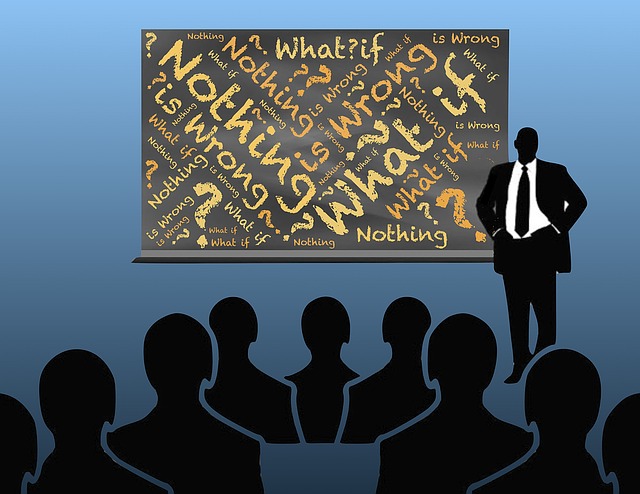How Not to Treat a Customer: My Yelp Marketing Fiasco
Plus: Why You Can’t Do True Direct Response Marketing on Yelp, and other Tips for Businesses Considering Yelp
This is not a Yelp-bashing article. In fact, reading this will teach you a lot about marketing, as well as give you a heads-up about Yelp marketing and advertising. And, I have a lot of respect for certain aspects of Yelp’s business. In fact, a friend of mine has seen his house-painting business boom as a result of advertising on Yelp.
Always on the lookout for ways to find new leads and customers for my growing copywriting and marketing consulting business, I decided to try it out for myself.
Sad to say – it didn’t work out. Not. At. All.
What follows is not just a cautionary tale about believing promises from bad salespeople – the ones who give the rest of us a bad name. It’s also a super-helpful guide if you want to boost your expertise and/or competence in any of the following areas:
- Customer service
- SEO
- Targeted Direct Response Copywriting
Let’s begin with what happened.
 My Yelp Advertising Story – The Promises of a Politician are Biggest Before the Election
My Yelp Advertising Story – The Promises of a Politician are Biggest Before the Election
I had a free Yelp business page for several months. It got a couple views per month, according to the monthly reports they send out. Never a single lead or phone call.
But I knew more was possible through the experiences of my friend’s business. So I decided to give their paid service a try. The salesman made me a lot of promises. Some were reasonable. Others were not.
To start with, he lied. The Yelp salesman told me there were three packages, the cheapest of which would run me about $500 per month or so. I knew this wasn’t true, and so I should have fled at this point. How did I know this? Because my friend was only paying $100 per month. So, Yelp’s first move in our as-yet-unconsummated relationship was to lie to me.
Not the way to win a customer’s heart.
Foolishly, I ignored this time-tested wisdom. And then he gave me his 3 Big Promises.
Big Promise #1: You’ll Make It All Back
The salesman’s approach was to ask me my average customer fees – how much do I make per customer, on average. Based on that, all I need is x paying customers to break even, and the whole process will be worth it.
This is a common approach used in direct response and other marketing. It puts our investments in terms that not only give clarity to what it will cost us, but that make it seem like a low risk. And that’s fine. Why? Because it’s true. If I get x ‘average’ customers, I will in fact make back my investment.
I talked them down to a three-month contract (from a year – an absurd commitment to foist on a relatively young business), we signed the papers and I got my Yelp business page rolling.
Big Promise #2: Views, Clicks, and Customers
The next big promise was that I’d be guaranteed a lot of page views, because I’m paying for my Yelp ad to show up a lot more than it was on the free version. Lots of page views means lots of clicks. And lots of clicks should mean I get a few customers.
Again – this sounds reasonable. However – basic SEO tells you this isn’t necessarily true. If your website gets 1 million views, but they’re looking for car washes and you sell auto parts, you aren’t going to make many sales. On the other han d, if you get just 100 viewers, but all of them are looking for auto parts, how many sales will you make?
d, if you get just 100 viewers, but all of them are looking for auto parts, how many sales will you make?
Would you rather have a million off-target site visitors, or 100 perfectly targeted ones? If you know anything about the internet and how to run a business, you take option 2.
So Big Promise #2 hinges on this question – what kind of people are viewing my ad? And this leads to the last promise. (It’s also where Yelp marketing fails miserably).
Big Promise #3: You Can Adjust Your Yelp Ad
This is the one that hurts, because it’s the one I really wanted the most when I decided to pay for Yelp’s marketing.
I already knew the basic business. I’ve been on lots of Yelp business sites as a customer. And I know from my own expertise that the key to effective online ads is the targeting, not the messaging. The message is vital, absolutely critical, and must be done well. But if that perfect message goes to the wrong audience, that’s like Donald Trump speaking at an anti-gun rally. Or Hillary Clinton talking to an anti-abortion crowd. Not going to work.
The Yelp salesman told me what I wanted to hear, just like a typical politician does. He said I can “customize” my Yelp ad.
As you will see in a moment, this is not true. But like many deceptive statements we hear from politicians, this Yelp salesman’s promise also has elements of truth. It’s not a “lie” in the technical sense, but it is not true either – in all the ways that really matter.
Yelp Marketing Results: What Happened?
In three months, as promised, I got a lot of views, and a lot of clicks. I even gotten a couple calls.
But not a single paying customer.
Why?
Do I just suck at writing, even though that’s what I pretend to do for a living?
Is my business page copy really that bad?
Does my Yelp ad stink?
Could it perhaps be what every person I talked to at Yelp told me every time I called in for help?
“More photos! More photos! You need photos on your page! Photos! Photos! Photos! Photos!”
Yes, they really said this – every single time. This was the only answer they had, every time I complained about a lack of business. It’s literally their only solution. Photos photos photos. Do you have any photos? Never mind that I don’t have a store or a physical product.
Well, I put up some “photos” – samples of my writing, mostly. It made zero difference, as I knew it would.
So no, it wasn’t the photos. Sorry dude. Try again.
So what was the problem?
The Fatal Flaw in Yelp Marketing
It was the audience targeting. Or shall I say, the complete lack of it. More terribly, it’s the total lack of control I have in doing anything to improve my targeting. My ad was good – for my audience. But was my audience seeing it?
Do my target audiences of info-marketers, small and online businesses, and nonprofits even use Yelp to find copywriters?
This is one reason I wanted to test Yelp as a marketing lead generator. I wanted to know the answer to this question. I figured a few hundred dollar investment was worth knowing this answer. (As it turns out, the answer appears to be “no”). I’ll say more on this targeting problem in parts 2 and 3 of this series. First, let’s finish the story, because this is where it gets really pathetic.
I did get two calls. From who?
Call #1:The first call was from a guy who wanted T-shirt printing done. He already had the words and design ready, and was looking for a printer.
Call #2:My second call was from someone who needed an HR recruiter to help them find a job.
Now, do I do T-shirt printing? No.
Am I an HR recruiter? No.
Are there any words – anywhere on my entire Yelp business page – that even hint or suggest or could possibly be interpreted by some mindless and stupidly programmed computer algorithm that I might do either of these things?
No.
Then I ask you, Mr. Yelp Marketing Politician – what the heck are these people calling me for? And why in the name of SEO are they even seeing my ad? Those wacky keywords are probably even killing the SEO of this article!
Yelp’s Response – How Not to Do Customer Service
 You’ve heard the cliché that “the customer is always right.” It’s not true, and we all know it. But the very-true axiom behind that expression is that the customer’s needs must be met. If they don’t get met, it’s the business’s job to find another way to meet them – if they ever want that customer to come back.
You’ve heard the cliché that “the customer is always right.” It’s not true, and we all know it. But the very-true axiom behind that expression is that the customer’s needs must be met. If they don’t get met, it’s the business’s job to find another way to meet them – if they ever want that customer to come back.
Customer service exists to produce customer retention. And customer retention happens when the customer feels like they got good service – even if something goes wrong with a product or service. How the business makes the customer feel through that experience is what counts.
I met a former Seattle Chief of Police a while ago. Her name was Sue Rahr, and she told a fascinating story. She said they did a study once on police giving tickets. What they found was that drivers cared more about how the officer treated them than whether or not they got a ticket.
Did you catch that?
If someone did not get a ticket, but felt the police officer disrespected them, this person was on average more angry at the cops than another person who did get a ticket, but felt the officer treated them right throughout the process.
So someone has to pay money, but feels better about it than someone else who didn’t have to pay, but got treated badly. Think about that!
If you want to improve your customer service – take a lesson from that story. Treat customers right when they have a problem, or lose them forever.
Yelp did not treat my problem right. Even worse, they didn’t even try. They refused to acknowledge the fact that I was getting calls from people wanting service I don’t even provide (and there’s only one explanation for how that’s possible).
I told them I didn’t want to keep paying more than $500 a month for zero qualified leads. Zero. I wanted out of my contract early. I was told I could do this, but I couldn’t do it for 30 days, and then when I cancelled, there would be a $500 fee!
That means, even if I cancel I have to endure another month’s worth of untargeted ad-clicks, and then pay the equivalent of another month’s fee just to cancel early. At that point in my three month contract, that would have left me saving only about two weeks’ worth of my Yelp marketing expense.
And they wouldn’t budge on this. No refunds. No reductions in fees. No explanation or apology for a computer algorithm that is so obviously falsifying “leads.”
What did they suggest I do instead? You heard it already: Put up more photos. Sweet.
Read Part 2 of My Yelp Marketing Saga here– 3 Lessons You can learn about Yelp and the marketing for your own business

